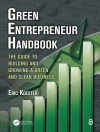The articles in this book have been selected for their importance to the reform movement and for their accessibility to the general reader. Intelligibility is one of the movement’s two keystones. ‘Real economic problems’ concern real people, so their analysis must be made intelligible to an educated general public if real democracy is to function.
The second keystone of the post-autistic movement is pluralism. All analysis proceeds on the basis of concepts that admit only a partial view of the economy, thereby predetermining the set of possible conclusions. This requires economists to begin to develop an ethos of honesty regarding the limitations of their chosen approaches. In engaging and thought-provoking prose, the 66 chapters of this book bring these and other conflicts out into the open and place them in the context of the major issues of the 21st century.
Table des matières
Contributors include: Frank Ackerman, Ana Maria Bianchi, Jorge Buzaglo, Bruce J. Caldwell, Ha-Joon Chang, Robert Costanza, Herman E. Daly, James G. Devine, Peter Dorman, Edward Fullbrook, James K. Galbraith, Daniel Gay, Yves Gingras, Bernard Guerrien, Shaun Hargreaves Heap, Robert Heilbroner, Geoffrey M. Hodgson, Goutam U. Jois, Steve Keen, Reiner Kummel, Dietmar Lindenberger, Robert Locke, Anne Mayhew, Matthew Mc Cartney, Deirdre Mc Closkey, Julie A. Nelson, Gilles Raveaud, Jacques Sapir, Mehrdad Vahabi, Richard Wolff and more.
A propos de l’auteur
Edward Fullbrook is a Visiting Research Fellow at the School of Economics, University of West England.












